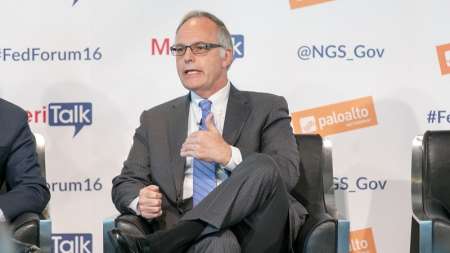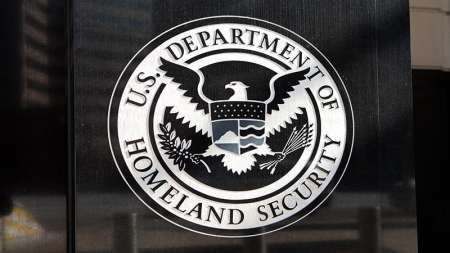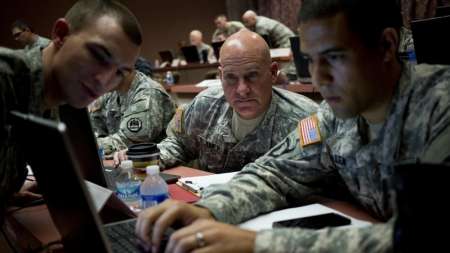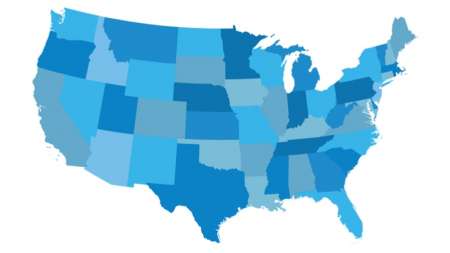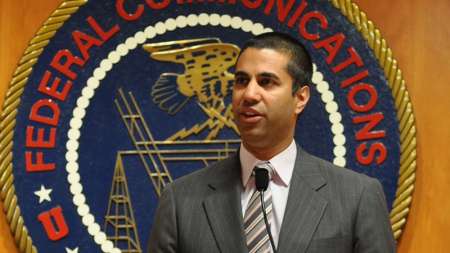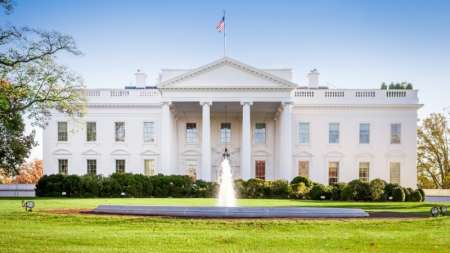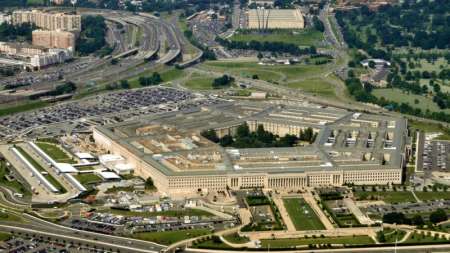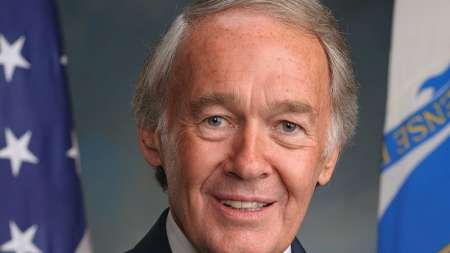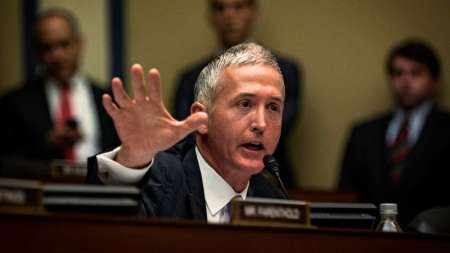The Election Assistance Commission on Tuesday released most state budget data for Help America Vote Act (HAVA) grants, which revealed that a majority of the $380 million in grant money is being devoted to cybersecurity and new voting equipment. […]
The Department of Homeland Security is working with multiple Federal agencies to develop a new “risk radar” that will help agencies’ top executives contextualize cybersecurity risk and clarify where they need to apply focus and resources, according to Mark Kneidinger, director of the Federal Network Resilience division of DHS’ Office of Cybersecurity and Communications (CS&C). […]
Microsoft Corp. said late Monday that its Digital Crimes Unit seized – with the approval of a special master appointed by a federal court – six internet domains created by Strontium, a hacker organization associated with the Russian government. […]
The Department of Homeland Security today released a request for information (RFI) calling on the private sector to provide DHS with information on strategies and tools to augment its cyber supply chain risk management program. […]
The Defense Department is pushing full speed ahead on modernization efforts, with recent strides made on a $28 billion R&D project, a $10 billion cloud infrastructure proposed contract, efforts to move cyber defense infrastructure to the cloud, along with myriad advanced research and futuristic projects. They’re even working to overhaul their travel planning system. Call it AirDoD, perhaps? […]
A new report from The Century Foundation, a progressive think-tank, urges state law enforcement officials to take action on data privacy regulations in the absence of any substantial movement in that direction by the Federal government. […]
The Department of Homeland Security on Aug. 13-15 hosted “Tabletop the Vote 2018: DHS’ National Election Cyber Exercise,” which invited vendors and Federal, state and local election officials to participate in election security preparation. […]
Cybersecurity solutions provider Cylance today announced that it is offering free artificial intelligence-based antivirus software “to support all 2018 U.S. political campaigns” in the wake of pervasive election security concerns across the Federal government. […]
The Army needs help from academia and the private sector to modernize its workflow, explained Maj. Gen. Garrett Yee, acting deputy CIO for the U.S. Army, during an Avaya webinar today. Yee specifically stressed an interest in industry helping to make the Army’s workflows interoperable and said that “workflows at the installation level must be scalable” to achieve true modernization. […]
The information security market will grow 8.7 percent, to $124 billion, in 2019, according to a forecast released today by research firm Gartner. […]
In advance of his appearance before the Senate Commerce, Science, and Transportation Committee scheduled for tomorrow, four House Democrats hammered Federal Communications Commission Chairman Ajit Pai over statements he made in 2017 that the FCC was a victim of a distributed-denial-of-service (DDOS) attack which impacted its electronic comment filing system during the agency’s net neutrality rulemaking proceeding last year. […]
Uber has appointed Matt Olsen, formerly general counsel at the National Security Agency, chief trust and security officer. […]
The White House said President Trump has signed into law the NIST Small Business Cybersecurity Act, S. 770, which directs the National Institute of Standards and Technology (NIST) to provide resources to small businesses to help them implement NIST’s voluntary cybersecurity framework. […]
The idea that you can’t trust everything you see on the Internet is a conventional, if sporadically followed, wisdom. But as hackers become increasingly skilled and sneaky, as “fake news” officially enters the dictionary, and as fake video and fake audio become more of a thing, you might not necessarily be paranoid to wonder if you can trust anything. […]
China-based communications equipment maker Huawei Technologies said in a statement late Monday that the ban on Federal government use of the company’s products contained in the FY2019 National Defense Authorization Act (NDAA) signed by President Trump this week won’t do anything to improve supply chain security. […]
The National Security Agency published a news feature today that provides a new, NSA-developed resource for organizations looking to promote the well-being of their cybersecurity personnel. Dr. Celeste Lyn-Paul, senior researcher and technical advisor at NSA Research, and Dr. Josiah Dykstra, deputy technical director of NSA Cybersecurity Operations, developed the Cyber Operations Stress Survey (COSS) to help gauge stress levels of security personnel in high-risk environments. […]
Sen. Edward Markey, D-Mass., is pressing major electric utility companies for details about whether and when their systems have been penetrated by Russian-affiliated hackers, and at the same time is querying several Federal agencies about what they are doing to help utilities recognize and prevent attempts to break into their networks and control systems. […]
The state of Maryland is not properly securing Medicaid data and information systems, according to a Department of Health and Human Services (HHS) Office of Inspector General (OIG) report released today that found “numerous significant system vulnerabilities” in the state’s IT systems. […]
MITRE, a manager of Federally-funded research and development centers targeting Federal defense, intelligence, and cybersecurity functions, recommended in a new report released today that the Defense Department (DoD) undertake a sweeping menu of actions to improve military supply chain security, and warned that maintaining the status quo of current security policy may have ruinous consequences. […]
Welcome to MeriTalk News Briefs, where we bring you all the day’s action that didn’t quite make the headlines. No need to shout about ‘em, but we do feel that they merit talk. […]
President Trump today signed into law the FY 2019 National Defense Authorization Act (NDAA), which clocks in at $717 billion in spending for the Pentagon. After months of negotiations, hearings, and compromises, the must-pass defense spending bill was signed during a visit by President Trump to Fort Drum in upstate New York this afternoon. […]
A new survey from Venafi shows a very high level of concern about cybersecurity among election administrators, with 93 percent voicing concern about cyber-attacks targeting election data and infrastructure. […]
As Federal agencies adopt DevOps practices to shorten development cycles and increase deployment frequency, security must be interwoven into every aspect of the process from design, through coding, testing, release, and operation. […]
A bipartisan group of House Intelligence Committee members today introduced the Secure Elections Act that would help state and local governments apply for Federal grants to modernize their election systems and receive relevant cyber threat information. […]
People power took the stage during a panel on Thursday at FCW’s Cybersecurity Summit as participants emphasized the importance of supporting cybersecurity personnel to ensure quick and effective responses to threats. […]
A former top White House cybersecurity policymaker and IT systems manager at the Department of Education said today at the FCW Cybersecurity Summit that Federal agencies should expect to become targets of sophisticated cyber attacks and should count on assistance from other entities including their cloud service providers to meet those assaults. […]
Welcome to MeriTalk News Briefs, where we bring you all the day’s action that didn’t quite make the headlines. No need to shout about ‘em, but we do feel that they merit talk. […]
The Small Business Administration’s (SBA) Deputy CIO Guy Cavallo and CTO Sanjay Gupta said today at the FCW Cybersecurity Summit that their agency’s unorthodox approach to the Continuous Diagnostics and Mitigation (CDM) Program is yielding a ton of practical benefits, even though it required a bit of a departure from CDM’s initial guidelines. Now, SBA is providing a new potential model for other agencies – many struggling with the first of CDM’s four phases – to use when considering how to achieve the outcomes the program intends. […]
Agencies have 68 days remaining to achieve compliance with the Department of Homeland Security’s (DHS) binding operation directive (BOD) 18-01, which requires the active enforcement of the Domain Message Authentication, Reporting, and Conformance (DMARC) protocol. […]
Federal agencies should reduce complexity to fight back against cybersecurity threats, government and private sector participants said during a panel at FCW’s Cybersecurity Summit. […]


